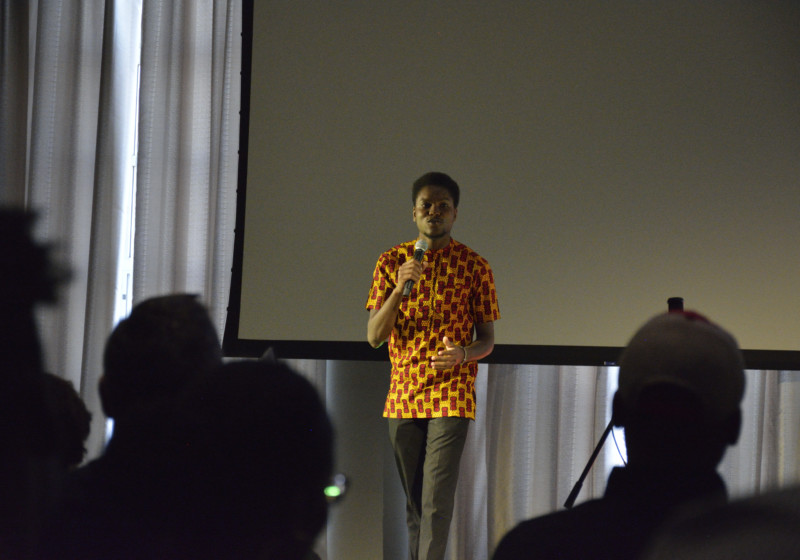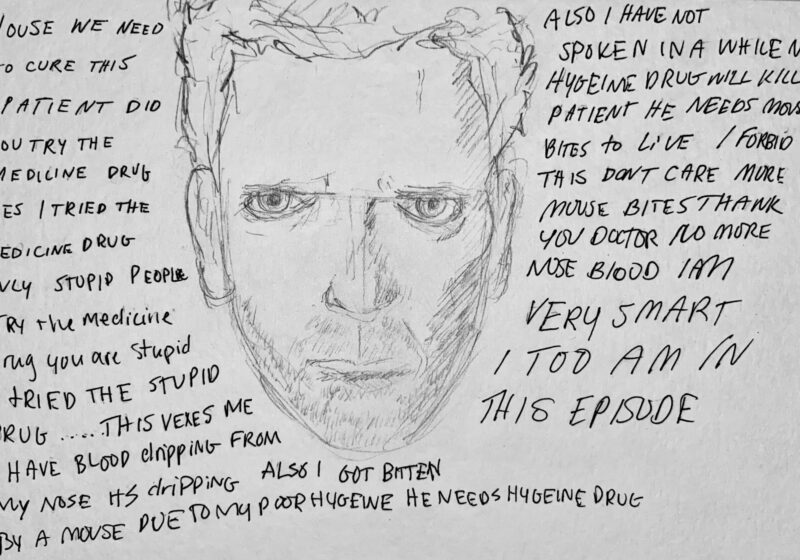Students gushed with enthusiasm at crowded Feldman Ballroom tables last Saturday for Afrikanza, the culminating event of Africa Week, organized by the Pan African Students’ Association.
“Afrikanza is an event that is used to reinforce cultural diversity in the University environment among PASA members,” said sophomore Kaps Chalwe, the group’s vice president.
The theme of the night was “Mayibuye iAfrica,” a slogan used by Nelson Mandela that roughly means “let Africa come back.”
Starting last Monday, every day (except for Friday) featured a different event, essentially serving as publicity and promotion for Afrikanza, according to Chalwe.
The events, however, varied in connection to Afrikanza itself. The first event of the week, on Monday, called “African Odyssey,” included the sale of clothes, sculptures, paintings and featured face painting.
“We are trying to get people interested in African culture, with these fabrics, arts, and products,” sophomore Dewey Bazirake, who was working at the event, said.
The products for sale were all directly from Africa.
“We’re selling authenticity,” Bazirake said, adding, “When you buy these, you are supporting craftsmen and ladies on the African continent.”
Tuesday’s event, held in Morey, had a heavier topic on its mind. Publicized as a “panel discussion,” it was in reality a large group discussion. The topic was “brain drain,” the way in which outstanding African students and professionals are given incentives to leave the continent, depriving it of potential improvement.
Olavi Hangula, the first-year who organized Africa Week, led the discussion, opening (following a TedX talk by biologist Kevin Njabo) with a question:
“Would you regard brain drain as a form of resource extraction?”
Throughout the discussion, Hangula interjected to moderate and give relevant statistics.
Almost immediately in the discussion the definition of brain drain was questioned.
“Before you call it ‘brain drain’ you should ask what would happen if they didn’t come here,” one student said, adding, “It’s only ‘brain drain’ if we don’t go back home.”
Throughout the discussion, issues of colonialism, privilege, and corruption were debated.
The event was sparsely attended, 15 people at maximum, but there were never any gaps or pauses.
“Even if there weren’t so many people, there was so much passion,” Chalwe said after the event.
Days later at Afrikanza, a play written by Chalwe was performed, dealing with the same issue. Audience members yelled, laughed, applauded, and snapped throughout the performance. Particularly audible were the responses to the main character’s overbearing mother, as well as to lines like, “Always in our business. What are you, a journalist?”
Thursday’s event was a short film screening accompanied by another discussion, this one led by Sasha Eloi-Evans, an academic programming coordinator for the Office of Minority Students Affairs. The film, “Watu Wote,” was a tense drama based on a true event from 2015, when a bus from Nairobi was attacked by Al-Shabaab militants intent on murdering the Christian passengers. The Muslim passengers protected and defended the Christian passengers. The story is told through the perspective of a Christian woman who holds the death of her family at the hands of Al-Shabaab against all Muslims.
The following discussion featured many personal stories. One student described his fear when a place his father frequented was bombed. A Tanzanian Muslim student told of how his mother tried to suppress his relationship with religion out of fear that he might be radicalized.
In reaction to the film’s portrayal of an initially-Islamophobic character, one student asked how people affected by extremism could get rid of their anger. Another responded: “When you’re emotionally involved in it, you kind of understand where that [Islamophobic] anger comes from.”
A student closed the discussion by expressing his appreciation: “It’s really nice to be in an environment like this where we feel safe talking about religion and all of our differences.”
The next event, the Rochester African Business Conference in Schlegel Hall, was on the same day as Afrikanza, which also included a business element. Afrikanza’s keynote speaker was Brian Asingia, founder and chairman of WeDreamAfrica, an online service that distributes films, music, series, and other forms of storytelling media from around the world. Asingia’s speech detailed the story of his company’s inception as well as the goals that the company is currently working toward.
Afrikanza was bookended by performances from PASApella, M’afrisah, and Axum (all subcommittees of PASA). PASApella, the student-run African a capella group, opened with “Circle of Life” as audience members recorded on their phones. Next was Axum, the student East African dance group. The final group before Asingia’s talk was M’afrisah, UR’s modern and traditional African dance group, which made showy use of colored lighting, as the audience applauded and shouted their support.
Also included were two fashion shows with student models wearing outfits such as an orange patterned dress and headscarf.
Before the performance of the play, a poem, “Ode To My Mother Tongue,” was read by its author, Anesu Mafuka, an international student from Wheaton College. The poem dealt with the issue of keeping one’s mother language after coming to the U.S.
M’afrisah closed the evening with a final performance, which ended with a dancer jumping into a split in the center of the stage. The audience roared, their appreciation relentless at the end of the four-hour night.





